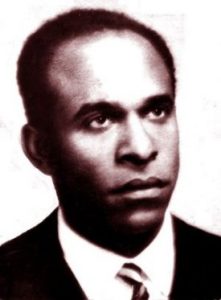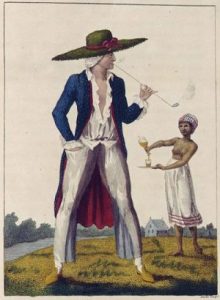Forget the Juice Cleanse: Rid Yourself of Male Toxicity for a Fresh, Rejuvenated Glow! (Only $99.99 for a limited time)
The ability to embrace femininity has always been a uphill battle in relation to the issues women have dealt with in Western society: in recent years, liberating ourselves through our sexuality has become apparent through movements like “SlutWalk”, a march that demands an end to rape culture, or even “free bleeding”, in which women refuse to hide their menstruation by allowing themselves to bleed without the help of tampons or other methods of concealment.
The Decolonization Manifesto: Marx and Muslims
In The Wretched of the Earth, Frantz Fanon enhances a Marxist analysis by addressing the intersections of race, colonialism and capitalism. Fanon uses the terminology of Marx and Engels but applies it in different ways. By ‘stretching’ Marxist analysis, Fanon makes it relevant to decolonization (Fanon, 5).
Asserting Meaning in Dabydeen’s “Brown Skin Girl”
David Dabydeen’s Slave Song addresses the dilemma of how to identify the ‘true’ voice of a Guayanese culture that has been clouded and corrupted historically by the voice of colonialism. Dabydeen, born in Guyana to Indian parents but having emigrated with his family to England as a young boy, expresses this conundrum in the three separate voices, all of them created by Dabydeen himself, that are intricately intertwined throughout the book: the creole voice of the poems; the historical, cultural, and at times academic voice of the introduction and notes; and the English voice found in the translation of the creole poems.
Dreams We Must Loathe
As the Man attempts to walk the narrow line separating blind optimism and consuming despair, he uses his dreams and memories to keep him situated on the difficult path of realistic survival. The combination of the will to survive and unavoidable despondency yields a certain type of recollection of memory.



